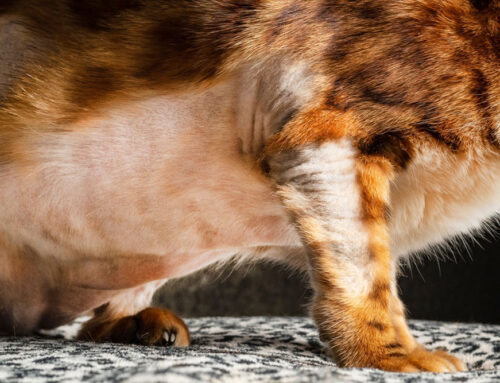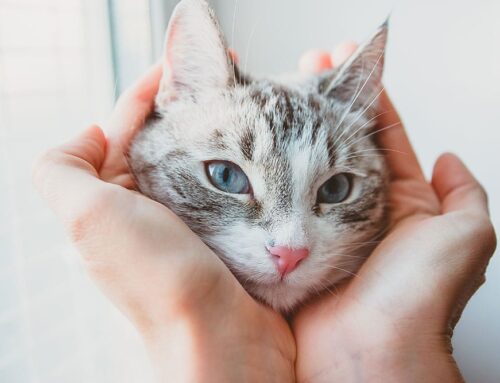It’s American Heart Health Month so Just Cats is celebrating by helping you understand more about your cat’s heart health!
We frequently recommend a laboratory test called the Cardiopet ProBNP. It’s a simple blood test that can tell us a lot about your cat’s heart health. The ProBNP test works by detecting a protein that is released in response to cardiac stretch or stress called N-terminal pro-B-type natriuretic peptide (NTproBNP). In general, the concentration of the NTproBNP protein will increase in proportion to the severity of the heart disease giving us a marker for your cat’s heart health. Basically, the higher the NTproBNP value, the greater the concern for heart disease.

While the Cardiopet ProBNP test isn’t a substitute for a visit to the cardiologists at CVCA, it can be a helpful marker in determining if a cardiology visit is needed. If during your cat’s exam, we hear a murmur or unusual rhythm, the ProBNP test can help us determine the severity of the problem. If it’s elevated, a trip to the cardiologist will be necessary to determine the exact cause. If it’s normal, then your doctor can help you determine the risk factors before any anesthesia procedures and if any additional follow up diagnostics would be needed to investigate the cause further.
The ProBNP test is perhaps most helpful in screening for unknown heart disease in cats of all ages. At Just Cats, we recently opted to add the Cardiopet ProBNP to all of our pre-operative lab work for young cats in our efforts to catch asymptomatic heart disease in our younger patients. This can help make our anesthesia even safer. Heart disease in cats often causes no noticeable symptoms until it’s too late or your cat is already under anesthesia for preventive care like spays, neuters, or even dentals. Our goal is to catch these cases before it’s too late and the Cardiopet ProBNP test is a cost effective and accurate place to start.

That being said, the ProBNP test is not perfect, and its results can be skewed from other disease processes in the body. Severe kidney disease, hypertension, hyperthyroidism, asthma, and chronic pulmonary disease can cause elevations in the ProBNP protein. If your cat’s level is elevated and they have no symptoms, murmur, or unusual rhythm, there may be another disease process contributing. For this reason, we always recommend running the ProBNP with a full complete blood count (CBC) and chemistry panel.
It’s our goal to make your cat’s anesthesia as safe as possible, and the ProBNP test can be the first step! If you have questions about your cat’s heart health, or are interested in running the ProBNP test, call our office or let us know at your next annual exam.












